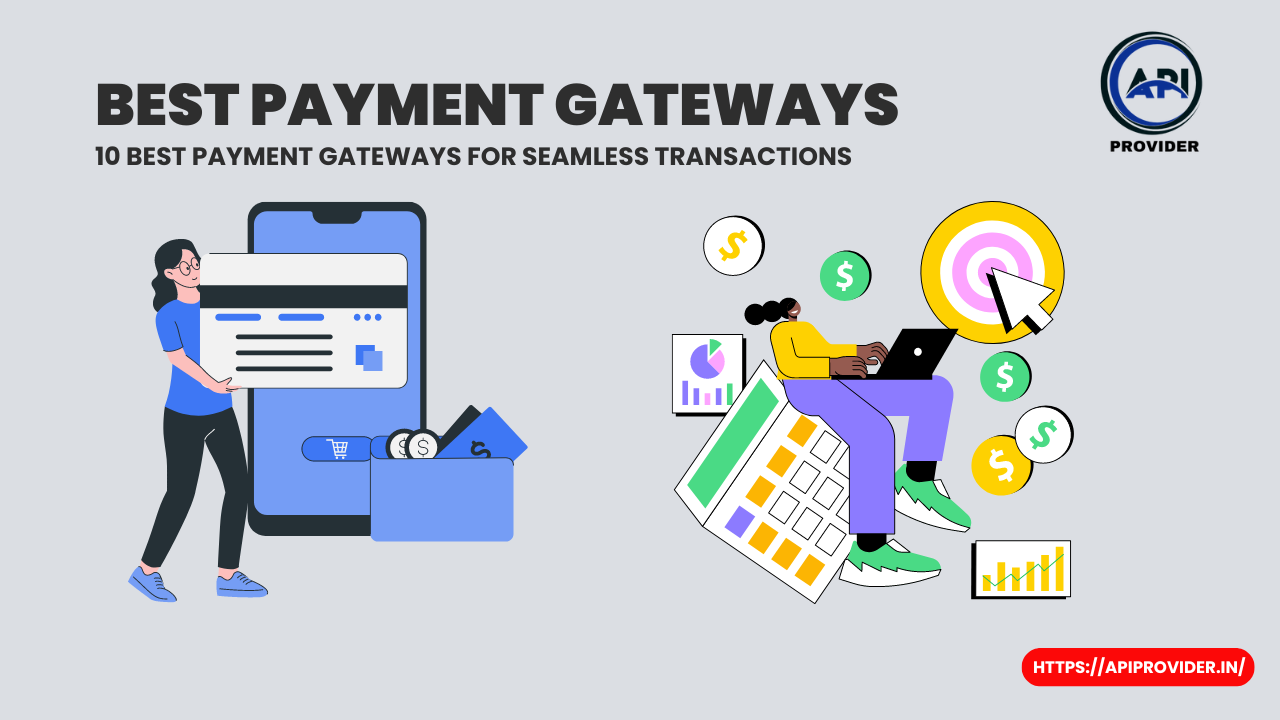Best Payment Gateways: In today’s rapidly evolving digital landscape, where online transactions have become the norm, having a reliable payment gateway is essential for businesses to thrive. Whether you’re a small startup or a large enterprise, the payment gateway you choose can significantly impact your customer experience and ultimately your bottom line. In this comprehensive guide, we’ll delve into the top 10 payment gateways, exploring their features, benefits, and drawbacks, to help you make an informed decision for your business.

The Importance of Choosing the Right Payment Gateway
Before we dive into the list of top payment gateways, let’s take a moment to understand why selecting the right one is crucial. A payment gateway serves as the intermediary between your business and your customers, securely processing their transactions and transferring funds to your account. Beyond its fundamental role in facilitating payments, a good payment gateway should prioritize security, offer seamless integration with your website or app, and provide competitive pricing to ensure a positive experience for both you and your customers.
Read More..
- Navigating the OPGSP Guidelines: Ensuring Trust and Safety with API Provider
- Top Payment Gateway Providers: Zero Transaction Fee API Providers
10 Best Payment Gateways
Now, let’s explore the top 10 payment gateways that have earned a reputation for their reliability, user-friendliness, and range of features:
1. PayPal
Features:
- User-friendly interface
- Trusted brand with wide international acceptance
- Support for multiple currencies
Pros:
- Easy setup process
- Comprehensive buyer and seller protection
- Seamless integration with most e-commerce platforms
Cons:
- Higher transaction fees for certain transactions
- Limited customization options for checkout pages
2. Stripe
Features:
- Powerful API for customization
- Transparent pricing with no setup fees
- Advanced fraud detection tools
Pros:
- Versatile platform suitable for various business models
- Multi-currency support for international transactions
- Real-time reporting and analytics
Cons:
- Complexity may be challenging for non-technical users
- Limited customer support options
3. Square
Features:
- All-in-one solution with integrated hardware and software
- Point-of-sale (POS) solutions for brick-and-mortar businesses
- Affordable pricing with no monthly fees
Pros:
- Easy setup and intuitive interface
- Integrated analytics for tracking sales and inventory
- Seamless integration with Square’s ecosystem of tools
Cons:
- Limited international availability compared to other providers
- Hardware costs may be prohibitive for small businesses
4. Authorize.Net
Features:
- Robust security features including fraud detection and encryption
- Extensive integrations with popular e-commerce platforms
- Recurring billing support for subscription-based businesses
Pros:
- High reliability with minimal downtime
- Comprehensive fraud prevention tools to protect against chargebacks
- Customizable payment forms to match your brand’s aesthetic
Cons:
- Complex setup process requiring technical expertise
- Higher transaction fees compared to some competitors
5. Adyen
Features:
- Global reach with support for multiple payment methods and currencies
- Advanced data analytics for optimizing payment performance
- Omnichannel solutions for seamless customer experiences
Pros:
- Comprehensive payment options including alternative methods like digital wallets
- Advanced security measures to protect against fraud and data breaches
- Dedicated account management and support for enterprise clients
Cons:
- Higher setup costs and processing fees
- More suitable for large enterprises with complex payment needs
6. Worldpay
7. Braintree
8. 2Checkout
9. PayU
10. Square Payment
FAQ: Frequently Asked Questions
1. What is the best payment gateway for small businesses? For small businesses, options like Stripe and Square are often recommended due to their ease of use, affordability, and range of features tailored to the needs of startups and SMEs.
2. Can I use multiple payment gateways on my website? Yes, you can integrate multiple payment gateways into your website to offer customers more flexibility in payment options and cater to their preferences.
3. How do payment gateway fees work? Payment gateway fees typically include a combination of setup fees, transaction fees, and sometimes monthly fees. These fees can vary depending on the provider and the type of transaction being processed.
4. What is the difference between a payment gateway and a payment processor? A payment gateway securely authorizes transactions between the customer and the merchant, while a payment processor handles the actual transfer of funds between the merchant and the customer’s bank account.
5. How can I ensure the security of my chosen payment gateway? To ensure the security of your chosen payment gateway, look for providers that comply with industry standards such as PCI-DSS and offer features like SSL encryption, tokenization, and robust fraud detection tools.
Conclusion
Selecting the right payment gateway is a critical decision for any business looking to streamline its payment process and provide a seamless experience for customers. By considering factors such as features, reliability, pricing, and customer support, along with the insights provided in this guide, you can find the perfect payment gateway to meet your business needs and drive growth.
